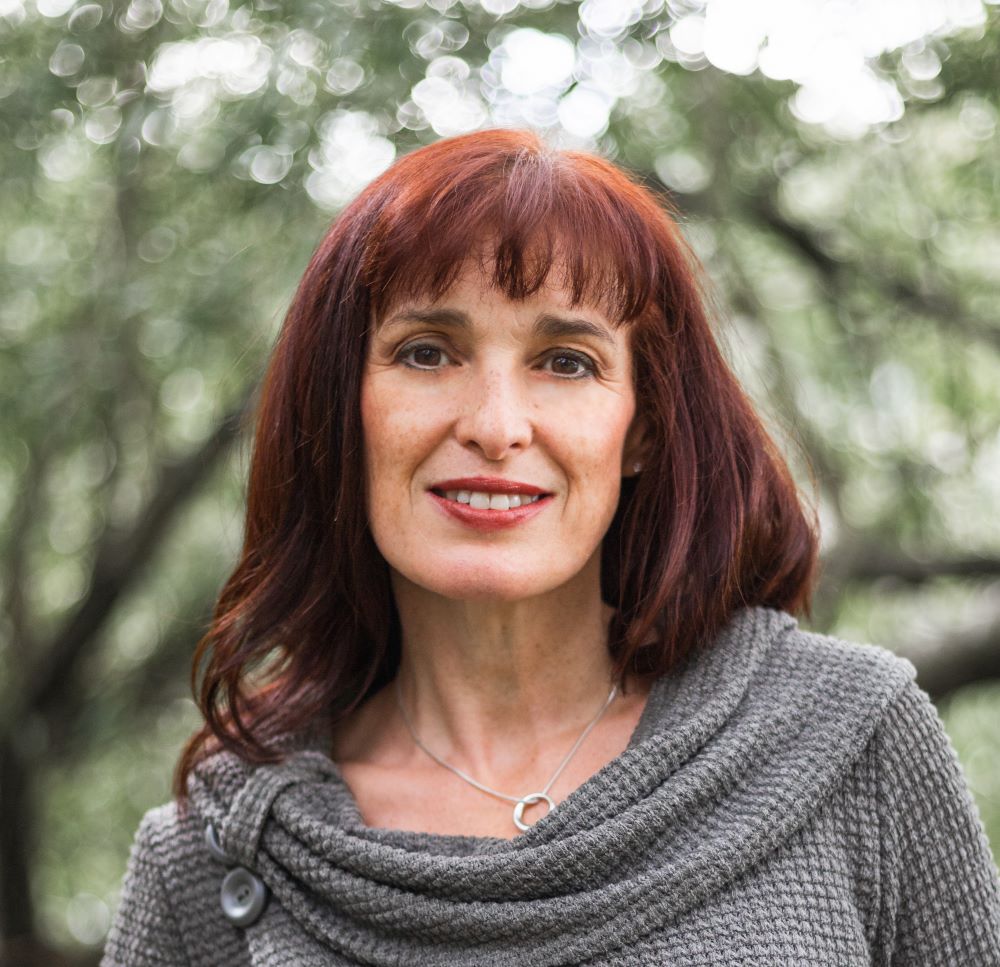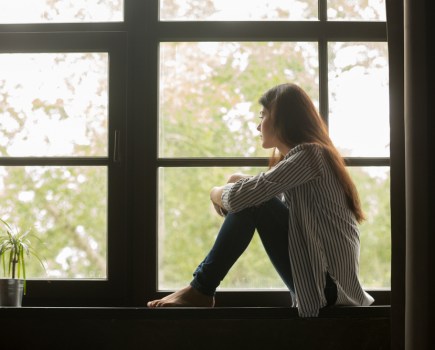 With so many of us struggling to adjust to this new way of life, we hear from experienced career and life coach Julia Sinclair-Brown who advises us on how to navigate the loss of normalcy during COVID…
With so many of us struggling to adjust to this new way of life, we hear from experienced career and life coach Julia Sinclair-Brown who advises us on how to navigate the loss of normalcy during COVID…
Click here to order the latest issue of Top Santé magazine!
So much of our lives are based around loss/change/transition – we are constantly evolving. Some of these life changes are planned, for example, moving home, starting a new job and starting a family. Others are forced upon us and are often beyond our control, such as redundancy, divorce, ill-health, and, most usually, death being the worst of them.
But now the world is faced with an unplanned, unexpected loss of normalcy, loss of safety and loss of connectedness through COVID19, which has left us all in a state of temporary grief.
What makes it more difficult is that this type of loss is one that is unknown – there are no self-help books that have been written to give us guidance through how to cope with a global pandemic.
At best we are all trying to prop each other up and stay connected with our friends and loved ones as much as possible online. We are all faced with the same uncertainty: fear of what is to happen next, for how long we will remain confined to our homes and how we should cope and keep mentally sane during this undefined period.
Change for all of us
In grief and in the business world too, the model of the loss/change curve is often quoted (via Kubler Ross) to help people recognise where they may be in the process. At the same time, it should be noted that this loss/change curve is only a map and not a linear way in which everyone processes loss.
In terms of the coronavirus pandemic, it is apparent to see how those stages have unfolded – and very quickly. For example, the first stage was the denial of how serious this is, which I believe many of us have recognised in ourselves.
I, along with many others first dismissed it quite casually as just another type of flu, waving off the seemingly early mass hysteria around it. But very quickly, that denial transformed into a state of shock when I picked up my son from his likely last day of primary school, saying a tearful goodbye to his teacher. I could literally feel my emotions dissolve in to anger at how quickly this pandemic had been able to spiral in the UK.
Although we had watched from afar the changes in Italy, it seemed none of us were ready for the myriad of changes from being sent home to work or more drastically, being possibly laid off from jobs temporarily, or forced to fight to keep self-employed businesses from going under.
Financial difficulties
Then there are the financial and practical worries of work, but also throwing in to the mixing pot, families also trying to juggle a home schooling routine, the abrupt disconnection of not being able to see our family and friends, to be told when and why we can leave our homes and so importantly, the freedom of our lives completely stolen from us almost overnight.
It is no wonder some of us might be stagnating for a while in the early stages of loss. And yet, the reality is that in order to best cope, we’ve had to adapt very quickly to this which is the final stage of the loss/change curve: acceptance/integration which can be likened to a ‘new norm’.
Why grief is very real for us all
But that’s just the theory. In reality, one of the key areas of grief that can be reflected in any major life change is the sheer exhaustion from the mental energy that is required in order to process and adapt to the loss. Normally, there is a period of mourning where the griever is generally expected to take time out of their everyday life to do so.
And yet, with this global pandemic, the speed at which individuals have transitioned everything from off-line to on-line is quite remarkable. For many, it’s driven by adrenaline and the core need to survive, which doesn’t allow for contemplation and the luxury of time, but for others, digesting and processing the loss of our normal life can feel exhausting.
A way out of suffering…
So, how are we to best cope in this crisis? Firstly, breathe, pause, stop for just a moment. A tiny bit of self-compassion during difficult life moments is the best way to get through them, but, often, we overlook our own wellbeing. Therefore we feel we must demonstrate that we are flexible and adaptable to absorb this incredibly difficult change in our lives and be ok with doing everything differently.
This is from work, school, exercise classes, hobbies, friendships which have been swiftly transferred to Zoom, WhatsApp, Facetime and phone calls. But we should be selective as to what we need to do and what we choose to do.
Maybe you’re just not inspired to start repainting your whole house, learn a new skill or wondering why you’re feeling guilty about not wanting to join in with the online singing choir class with your usual choir group.
There is almost a new pressure of having to either do all the home tasks that you’ve struggled to find time for previously, or that you should be ok with your whole life activities transferring online.
By cramming everything in, there isn’t any time or headspace left to instead use this rare opportunity to look inwards for a while. For some, the connections are a genuine lifeline and for others, maybe some things are just better off waiting for when we come back out into the ‘new world.’ And sometimes, during a crisis, it’s ok just to read a book.
Feeling out of control
It goes hand-in-hand when describing grief to give mention to the feeling of being ‘out of control’. Grievers commonly describe the safe world they once knew as no longer feeling safe and that’s very apparent in our current lives as none of us have ever experienced this before.
And yet, the truth is we can only change the things that we can control, ie, social distancing, washing our hands regularly, making sure we are taking care of ourselves and our loved ones. If we allow ourselves to continually absorb each other’s fear of what is to happen to us (ramped up by stories in the media), we are only perpetuating further these feelings of anguish and anxiety. In fact, it is just the opposite of that we need, as we all weather this storm together.
As our lives are being turned upside down, we can keep grounded with the knowledge that this is temporary, it won’t always be this way, even if we cannot now envisage our future. The best we can do for ourselves is to focus on the present moment only. That is the only certainty we have.
As with grief, many people find it hard to believe in the early days that they won’t always feel the depths of pain that they might do just after a loss. I try to reassure others that feelings may change from day to day, and often without apparent reason – sadness, hysteria, calm, yearning, anger, fear and relief are all emotions recognised in most types of loss and they can fluctuate wildly.
Finding meaning after grief
By allowing ourselves to sit in these emotions for a while, rather than denying them, we can start to recognize how, in fact, they are fluid and changeable and that allows us to move through them. In the bigger picture, I try to teach others that everything is temporary, the good stuff as well as the bad, and this pandemic will not last forever.
David Kessler (who worked alongside Kubler-Ross), recently added a sixth stage to the loss curve, that of finding meaning. And as many are saying, amidst the pain, despair, loss, disbelief, this is a huge moment of pause in all our lives, it’s near impossible not to be changed by it in any way. But there is meaning to be made from reflecting on how we live our lives, assessing what is and isn’t important, and maybe right now, we need that little bit of hope to cling on to.








